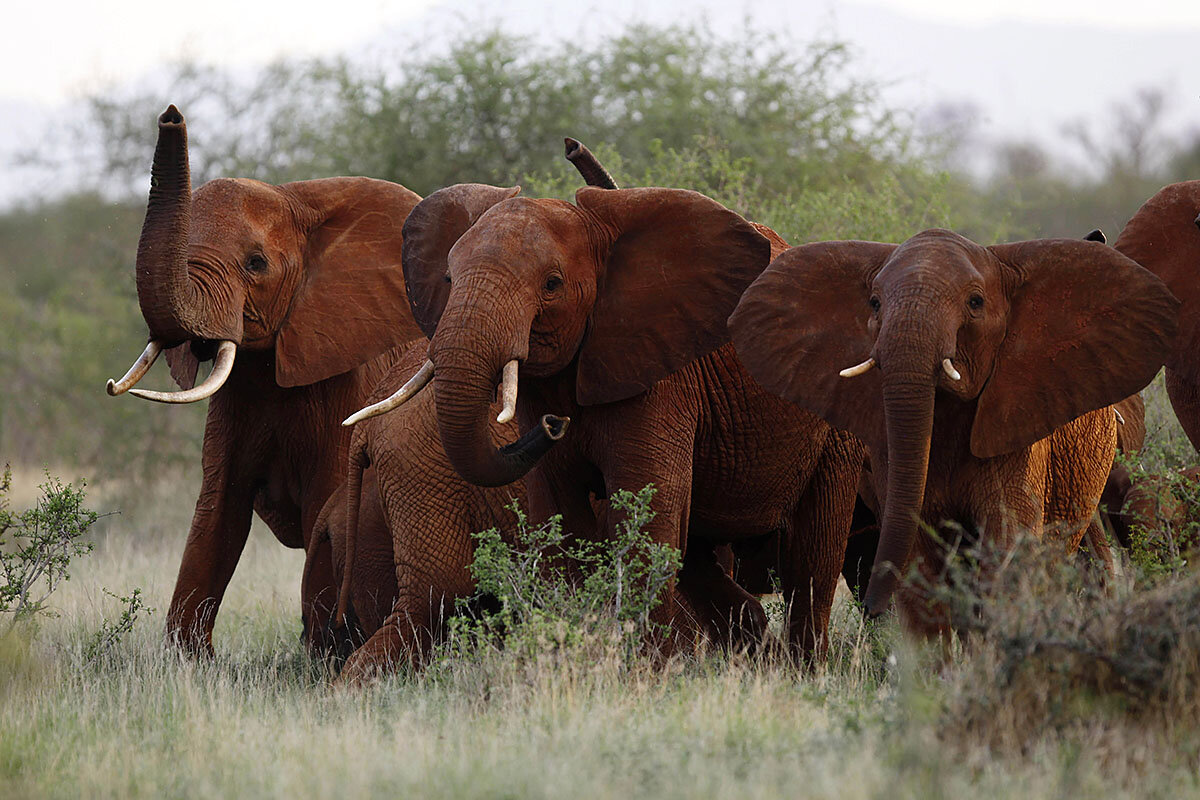Observers are concerned that the US is pinning too many of its hopes for the Mideast on the abilities of an untested young Saudi leader. What does that mean for policy options, and for regional dynamics?
Monitor Daily Podcast
- Follow us:
- Apple Podcasts
- Spotify
- RSS Feed
- Download
 Yvonne Zipp
Yvonne Zipp
Can you put a price on killing an endangered species?
The current rate for an African elephant: about $50,000 in fees.
The Trump administration announced hunters will be allowed to bring trophies from Zimbabwe and Zambia to the United States – if there is evidence that the hunt benefits conservation efforts for that species. The move comes after the lifting last month of a similar ban on lion trophies – put in place after the outcry over the death of Cecil the lion in 2015. The US had banned imports of elephant trophies in 2014, given “calamitous population decline.”
Research on hunting’s benefits to conservation is mixed. A 2014 study found fees could help preserve a species (in that case white rhinos). A 2016 US House study countered that corruption often meant money didn’t reach conservation programs.
More than 10,200 African elephants were hunted for trophies between 2004 and 2014, according to the International Fund for Animal Welfare. Some 71 percent of all hunting trophies went to the US.
Sport hunters point out that poachers kill far more elephants. Still, as China shuts down its ivory trade, and others take steps to protect the world’s largest land mammal, the value of some of Earth’s grandest creatures continues to demand deep consideration.
And now our five stories, designed to show you faith, community spirit, and a search for equality at work.










